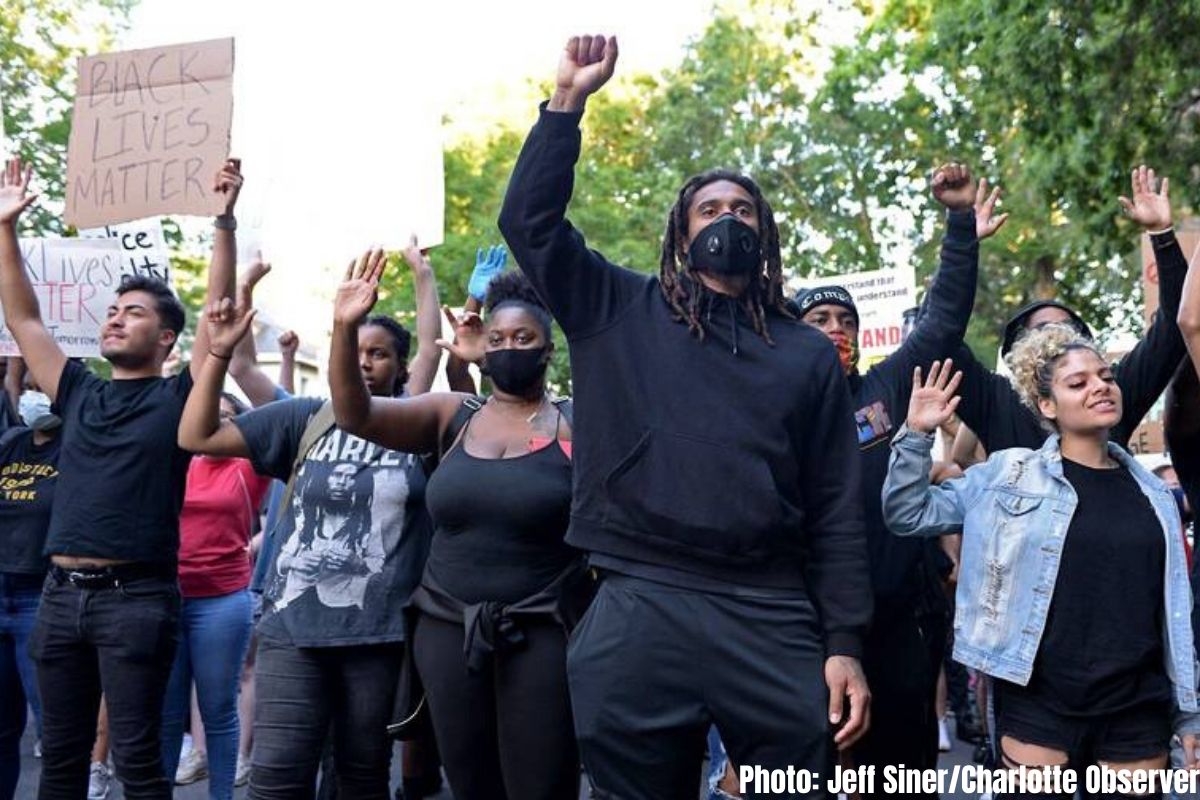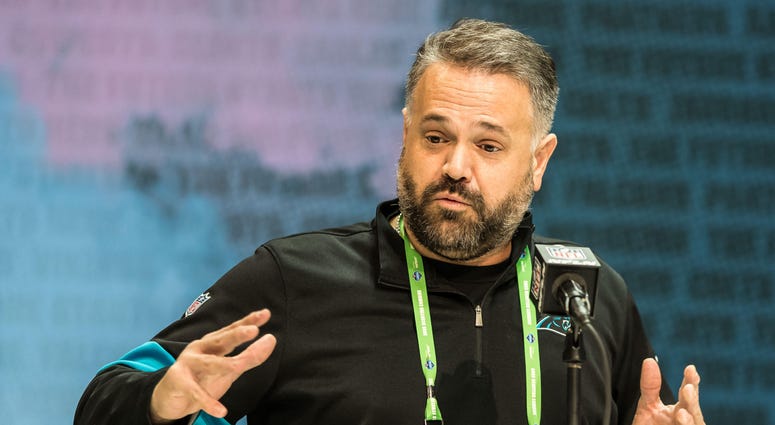On his message to the team: I’ve talked with the team many times about the issues. When I say talked to them, it’s not my job to tell other people how to feel – I think what I’ve done is say, ‘hey, this is what I’ve done, this is how I’m going to feel, I want you guys to all know that I respect your voices.” I want to have a team full of men whose purpose in life is not just to play football and so when I look out and I see Shaq, Tre, Chris, Ian and Andre out joining protesters, I wanted them to know that I support them with whatever they do. We don’t always have to agree on topics, but we all have to understand that we’re all going to have different visions and different mindsets. But I want our guys to use their voices and they can always come to me with anything – I want them to know that I certainly know that I’m not perfect; I’m trying to figure this out. I think we’re all trying to figure things out.
We have a player impact committee that’s headed up by Chris Manhertz and Andre Smith – they’ve done a lot of things in the past. We talked about it yesterday – if other guys want to get involved, whether it’s now, whether it’s in the future – we want to make something that’s run by the players, not run by the coaches. It’s just been conversation and being there for each other. As a white man talking to Shaq, what’s the best thing I can do? The best thing I can do is listen.
I can’t understand what it’s like to have racism pressed against me – I can try to understand, but I can’t understand. The best thing that I can do is listen to guys who dealt with it and allow me to understand where they’re coming from, understand what they’re saying, so I can make changes in my life, if that makes sense.
On what he here’s from the team when he listens: I hear my guys saying that there’s an issue. That there’s a problem that’s deeply affecting them. Some of the guys on my staff are some of my best friends and I hear them saying to me – “Coach, you have to understand. The fear that I have of letting my son get in a car and go out somewhere.” That’s so hard as a father to hear. I don’t have that fear. I think all of us, I think law enforcement, I think society, I think everyone would say that this isn’t right that African-American people have this fear that we don’t have.
When I talk to Jeff Nixon, we’ve been best friends for a long time. When I talk to Frisman Jackson, when I talk to Evan Cooper, when I talk to Tahir Whitehead, who I knew when he was 18 years old and is now a father of four, those are things that affect me, because nothing is more important in my life than my kids. I don’t have all of the answers, but I think that hearing that and starting to think about what can I do is the first step.
I want to make sure I say this again: It just can’t stop there. It has to lead to action, which leads to change. I hope that it’s time – it’s time for something to get started.

Shaq Thompson attends a Justice Walk in Charlotte to protest the murder of George Floyd. Photo Credit: Jeff Siner/Charlotte Observer
On participating in the protests: I think moving forward, after the team’s statement, the next thing is action, is what’s going to come next. I feel like the protests are great, but they’re only the beginning. Those protests and people making their voices heard, peaceful protesters in the street, they’re bringing awareness to the issue, but what happens next? I’m trying to figure that out – I have so much respect for Anthony Lynn of the Chargers, he said it yesterday so eloquently. ‘I want to do more than just talk,’ he was saying that he doesn’t know what that is yet – that hit me and I think we’re all trying to figure out what can we do, because we can’t look back in ten years and say nothing great came from this. That can’t happen.
My wife and I are trying to figure that out for our kids – I think part of that is having my kids sit and watch protests. Having my kids sit there and watch the death of Mr. Floyd. It can’t be something that they just don’t feel. That might be hard to sit there and show my five-year old daughter that happening, but that’s what happened. And I need my kids to see that.
Obviously, I’m talking to my kids and the players on a different level. When I’m talking to my kids, I’m telling them that this is how we think. Obviously, I don’t tell players how to think – when I talk to the players, I say where I’m coming from and I can’t tell you where you’re coming from, but this is where I’m coming from. When I talk to my kids, I want to make sure they understand what this means. And when you talk to kids, they have a tendency to just keep asking “Why?” And that’s the hard thing about this – I can’t answer why. I can’t say why this man died. I can’t answer that, but as I said, what’s important for my kids is that they understand that this is what our family believes.

On Eric Reid’s protest: Everywhere I’ve been, I’ve always supported our players when they’ve decided to make statements. Players making a statement, in whatever way that they do it, whether it’s with their voice, on social media, I’ve never had an issue with that. I don’t know where people will turn moving forward, but as I move forward, I want to make sure that our players understand that I’m always going to support them. When you make a statement, there’s always a responsibility behind that, so that’s why I’ve been very careful with the statements that I make. I think that we have great leaders on our team that are going to do things that mean something and do it the right way.
How off-the-field leadership translates to on-the-field leadership: I think it takes courage to lead, it takes courage to act. We talk about being a leader in the locker room and being a football leader – there’s a lot of courage that goes with that. You have to be willing to know that you’re going to mess up sometimes – that’s the hardest thing for players, they sometimes don’t want to lead and tell other guys what to do because they know eventually, they’re going to make a mistake on the field. I think it takes tremendous courage to step out of your comfort zone and say, “hey guys, let’s go this way or let’s go that way.” I think that when guys do that off the field, in whatever issues, whether it’s battling coronavirus, whether it’s racism, whatever the issues are that they step up for, I think that takes courage.
When players understand that football isn’t their purpose in life. It’s their passion, it might be their gift. But it’s not their purpose. So if they understand that, it makes things way bigger than just “I’ve just got to worry about football.” I’m supporting every player that we have in whatever decisions that they make, not just right now – but in all the things that they decide to do in their lives, the foundations, the organizations, the community service and all of the things that they do.


